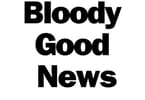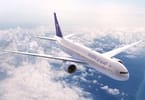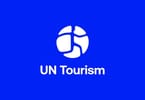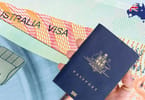- IATA estimates domestic markets will start to recover during H2 2021
- Global regulations, passenger confidence and flexible airline propositions key to sector recovery
- Short haul leisure travel to recover first – massive pent-up demand
- Industry will fully recover by Q3 2024
During the Arabian Travel Market, the conference session entitled “Aviation – the key to rebuilding international travel, restoring confidence, global solutions and building business,” was moderated by TV and radio presenter Phil Blizzard, with guest panelists including, George Michalopoulos.
Chief Commercial Officer, Wizz Air; Hussein Dabbas, General Manager Special Projects for MEA region, Embraer and John Brayford, President, The Jetse Overall, the panel was bullish about the recovery citing pent-up demand, which could initially outstrip the availability of flights until airlines resume their regular pre-COVID scheduled services and routes, particularly on domestic and regional routes which they agreed would be the first to recover.
“Domestic and regional leisure passenger traffic will recover first. This will be driven by massive pent-up demand, helped by relaxed ‘local’ restrictions and improved consumer confidence,” said Dabbas.
“This trend will ultimately increase demand from airlines for smaller more cost-effective aircraft – a maximum of 120 passengers, on direct routes, with increased frequency of service,” he added.
To illustrate his point, Dabbas pointed to the Air France-KLM pre-pandemic decision to order 30 A220 jets while announcing the retirement of their A380 fleet, in a bid to improve the airline’s fuel efficiency and costs.
“IATA estimates that domestic markets could recover to 96% of pre-crisis levels in the second half of this year, a 48% improvement over 2020 and a return to pre-COVID levels in the third quarter of 2024,” said Dabbas.
Talking about improving consumer confidence, the panel agreed that there had to be some form of global regulation, a collaboration between industry bodies, governments, airports and airlines, that would be easy to understand and universal.
“As it stands the quarantine rules and other COVID regulations are confusing, they need simplifying. Governments should concentrate on PCR testing and vaccines. Passengers need a secure source of information covering the flight and the destination,” said Dabbas, “We are a one-world industry.”
Michalopoulos added, “Vaccine passports are the way forward and it is also important that we communicate just how safe onboard air conditioning is. Some people think that recirculated air in planes is not safe, that simply isn’t true. Aircraft have filtering systems which are as efficient as hospital ICUs.”
Looking to the future, Brayford an industry stalwart whose company The Jetsets is pioneering fractional ownership in private business jets, said that airlines would need a clear plan moving forward.
“A niche today might become a mainstream trend tomorrow, so no opportunity should be overlooked, the way in which some airlines have supplemented reduced passenger numbers with cargo is a good example. Flexibility and managing costs will also be key.”
Running through until today (Wednesday 19 May) at the Dubai World Trade Centre, this year’s event has 1,300 exhibitors from 62 countries including the UAE, Saudi Arabia, Israel, Italy, Germany, Cyprus, Egypt, Indonesisa, Malaysia, South Korea, the Maldives, the Philippines, Thailand, Mexico and the US, underscoring the strength of ATM’s reach.
ATM 2021’s show theme is appropriately ‘A New Dawn for Travel & Tourism’ and spread across nine halls.
N'afọ a, maka oge mbụ na akụkọ ATM, usoro ngwakọ ọhụrụ ga-apụta ATM mebere nke ọma na-agba ọsọ otu izu ka e mesịrị, site na 24-26 May, iji kwado ma rute ndị na-ege ntị karịa ka ọ dịbu. ATM Virtual, nke mere mpụta mbụ ya n'afọ gara aga, gosipụtara na ọ bụ nnukwu ihe ịga nke ọma na-adọta ndị bịara ịntanetị 12,000 sitere na mba 140.
eTurboNews bụ onye mmekọ mgbasa ozi maka ATM.
IHE Ị GA-Ewepụ na edemede a:
- “IATA estimates that domestic markets could recover to 96% of pre-crisis levels in the second half of this year, a 48% improvement over 2020 and a return to pre-COVID levels in the third quarter of 2024,” said Dabbas.
- N'afọ a, maka oge mbụ na akụkọ ihe mere eme ATM, ụdị ngwakọ ọhụrụ ga-apụta ATM mebere na-agba ọsọ otu izu ka e mesịrị, site na 24-26 May, iji kwado ma rute ndị na-ege ntị karịa ka ọ dịbu.
- To illustrate his point, Dabbas pointed to the Air France-KLM pre-pandemic decision to order 30 A220 jets while announcing the retirement of their A380 fleet, in a bid to improve the airline's fuel efficiency and costs.























